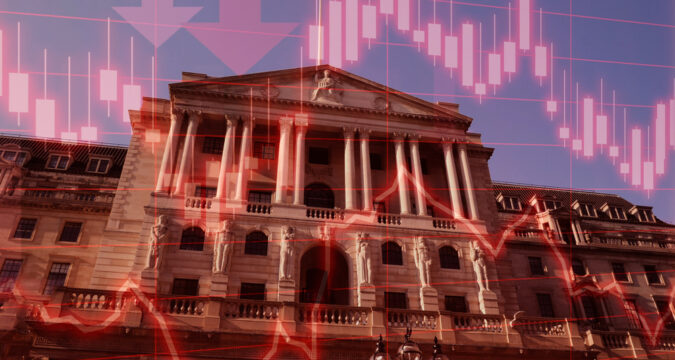
The Bank of England (BoE) is scheduled for a meeting on February 2nd and is on course to increase its main interest rate by 50 basis points, which would take it to 4%.
However, economists will be focusing keenly on any hints that this 10th straight increase in the interest rate could actually be the last one from the British central bank.
Inflation
The first central bank of a major economy that started tightening its monetary policy post the COVID-19 pandemic was the Bank of England (BoE) and it began doing so in December 2021 when the rate was 0.1%.
Last October saw inflation in the UK climb to 11.1%, which is the highest it has been in 41 years, and the Russian invasion of Ukraine played a major role in it.
In December, the inflation rate stood at 10.5%, which was still five times the 2% target of the central bank and significantly higher than in the United States, or anywhere in the eurozone.
As per economists’ forecasts and the financial markets’ pricing, the Bank of England will hike its interest rate once more on February 2nd by half a percentage point that will taking it to 4%.
The hike
This would push up the interest rate to the highest it has been since 2008, but there is a possibility that the BoE might decide for a smaller hike and only push the rate up to 3.75%.
After this hike, most economists believe that there will be one more to come in March, which will take the rate to 4.25%.
But, the financial markets have priced in the hiking cycling coming to a stop halfway through the year at a rate of 4.5%.
The economists said that they will be keeping a close watch to see if there are any signals from the Committee about coming to the end of their hiking cycle.
The US Fed is also scheduled for a meeting in the next week and it is also expected to put an end to its tightening cycle soon.
The European Central Bank (ECB), which is also meeting next week, is not even close to the end of its rate hikes.
Split committee
In December, the Monetary Policy Committee (MPC) had backed a hike of 50 basis points, but it had been split three ways.
There were two members who were in favor of putting an end to the hikes, while one member was in support of a larger hike of 75 basis points.
According to economists, they are likely to see the same situation in the next week as well. This is because it is uncertain how quickly inflation will decline in 2023 and 2024.
While natural gas prices have come down since the previous year, they are not close to the forecasts of the BoE in early November.
Andrew Bailey, the Governor of BoE, said that there was optimism about a swift decline in inflation, but the weak economic outlook could be a problem.


